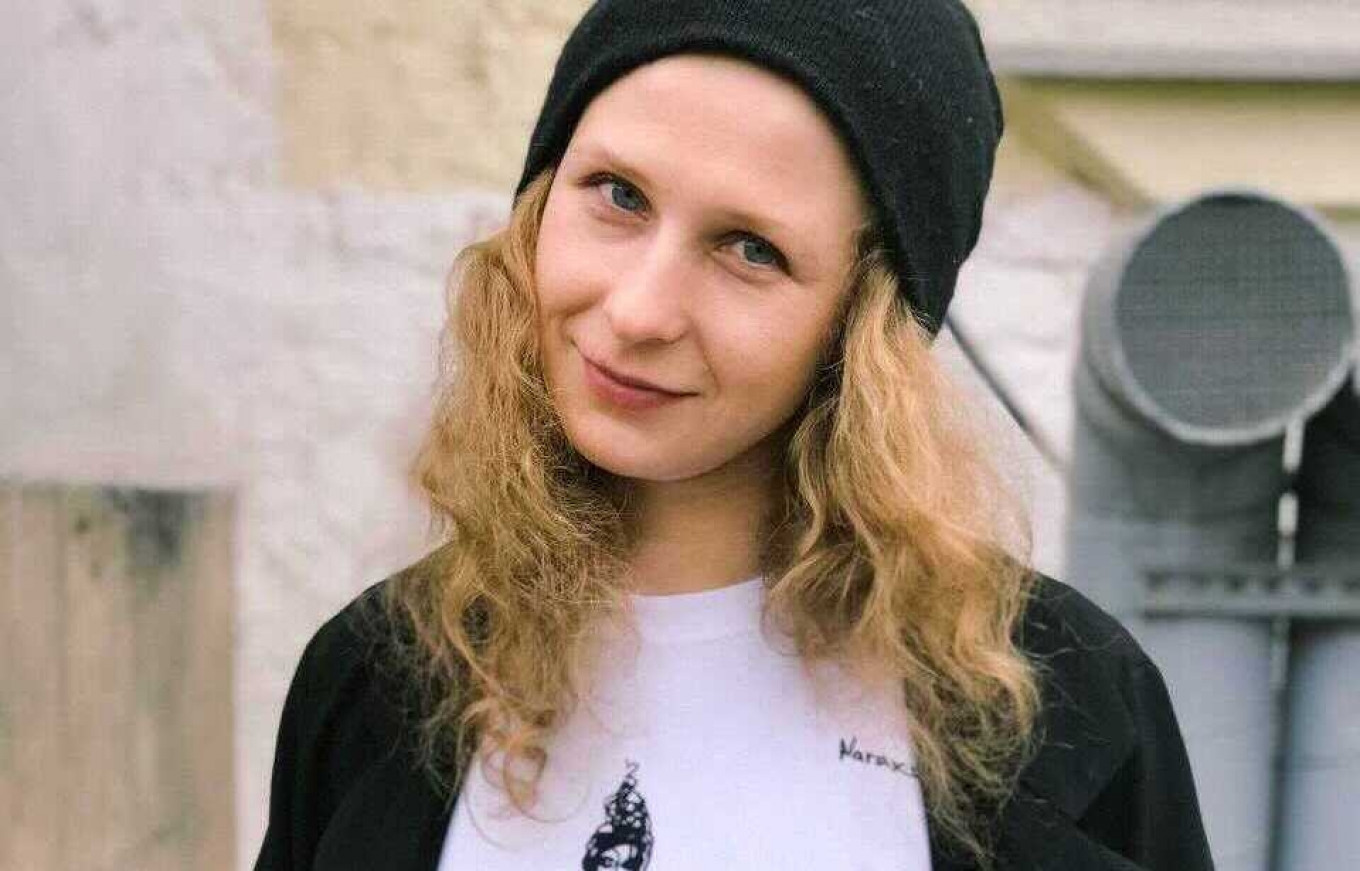
Maria Alyokhina is no stranger to being prosecuted for her politics.
The veteran Pussy Riot member is best known for her role in the group’s “Punk Prayer,” the provocative February 2012 protest in neon balaclavas at Moscow’s Christ the Savior Cathedral. She and fellow activist Nadya Tolokonnikova would spend two years in a prison colony for the act.
Nearly a decade later, Alyokhina, 32, once again finds herself at odds with the authorities as she may face up to two years in prison for an Instagram post demanding the release of political prisoners following the jailing of Kremlin critic Alexei Navalny.
Speaking to The Moscow Times from house arrest, Alyokhina said she is encouraged by the outpouring of support from the West calling for the release of Russian political prisoners like herself.
“When European and Western politicians stay silent, it leads to us being imprisoned,” Alyokhina said.
Alyokhina was among 10 opposition activists accused of “inciting mass violations” of coronavirus restrictions for calling on supporters to rally for Navalny’s release on Jan. 23. That day, tens of thousands nationwide took to the streets in one of the largest political protests in Russia’s recent history.
Pussy Riot are famous for their provocatively progressive politics. Meanwhile, Navalny’s nationalist past is coming back to haunt him, with Amnesty International revoking his “prisoner of conscience” status last month due to his past statements.
However, Alyokhina says Navalny’s arrest has united the opposition.
“He has been doing important work for many years,” she said, calling the focus on the past “propaganda.”
“The man almost died, now he is in prison while they are digging up some videos that are 15 years old.”
Last week, a Moscow court extended Alyokhina’s house arrest until June 23. She has been living with the restrictions since the end of January in an apartment she shares with her civil partner, her son and her mother.
The court also prolonged house arrest for fellow Pussy Riot member and municipal deputy Lucy Shtein, Anti-Corruption Foundation lawyer Lyubov Sobol, Navalny’s brother Oleg, independent doctors’ union leader Anastasia Vasilyeva and others.
“There’s a concert in honor of [Russia’s annexation of Crimea] that Putin personally attended with lots of maskless people, and at the same time our house arrest for violating coronavirus restrictions is being extended — this shows total hypocrisy on the part of the state,” Alyokhina said.
Ahead of the hearing to extend her house arrest, a group of high-profile Hollywood celebrities signed an open letter calling on the Russian government to halt the prosecution of Pussy Riot members.
The judge smirked at the letter as if it was “a piece of toilet paper to her,” Alyokhina said.
Nevertheless, Alyokhina said she feels grateful and happy to receive support from Western artists.
Guerilla performances
Alyokhina and Tolokonnikova co-founded the feminist, anti-Putin punk collective in August 2011 and quickly earned a reputation for their eyebrow-raising guerrilla performances.
Pussy Riot’s prosecution for “Punk Prayer,” which criticized President Vladimir Putin’s ties to the Russian Orthodox Church, was “one of the first manifestations of repression against political activists and artists” in modern-day Russia, Alyokhina said.
“Now such criminal cases are a regular practice where a person can get up to five years for speaking out, for single pickets, for opposition,” she added.
In the years since that performance, Russia has tightened its restrictions on public protests and online speech.
As 2020 came to a close, Putin signed into law sweeping new restrictions on information, free speech and protests including laws allowing the government to block foreign social media networks and imprisonment for spreading libel online.
“Putin adopted a whole kilometer of laws aimed at suppressing freedom of speech and, in fact, all of our political freedom,” Alyokhina said.
Before the tightening of the laws, she had been part of another campaign.
On Oct. 7, Putin’s birthday, Alyokhina and other Pussy Riot members hung rainbow flags on administrative buildings across Moscow in support of Russia’s LGBT community and in protest against alleged gay kidnappings in Chechnya.
Alyokhina called that action “dear to her heart” as it came nearly a decade after Russia banned “gay propaganda,” a law that critics say is used to silence LGBT voices.
Alyokhina also said U.S. President Joe Biden’s recent comments describing the Russian president as a “killer” needed to be voiced.
“Personally, I completely agree, I think that now, in 2021, it is inappropriate to extend any political correctness to Putin,” Alyokhina said.
“This man is a derivative terrorist unit of the FSB [security service], which hounds people and kills them outside the Kremlin walls, like they killed Boris Nemtsov. No one should have any illusions about who is now in power in Russia.”